I discovered Radu Vădan also on the Tâmplarii group, where I also found Fane Pănăzan.Unlike Fane, who grew up with sawdust in his nostrilsRadu taught himself woodworking. And he learned so well that he is now one of the group's recognised craftsmen. He helps many with useful advice and intervenes even-handedly when some people's advice does more harm than good. I've been watching him professionally for a long time, have seen a lot of his work and still can't believe he's been doing this job for 7 years. These days I talked to Radu about his passion for wood, about his journey from computer scientist to carpenter, about the difficulties, the satisfactions, the plans for the future.

It was the handy grandfather who paved the way
Radu Vădan is 39 years old, has a family with whom he feels fulfilled and a carpentry workshop in Cluj where he works only with wood and panel. He can't say what zero moment triggered his passion for woodworking. But he does know that it all goes back to holidays spent in the countryside with his grandfather for whom nothing was impossible. Grandfather was a farmer, but he had a lot of tools with which he did everything that was needed on the farm - fences, tool-ends, repairs, construction by the shed. When his tools weren't enough, he borrowed from neighbors to get the job done. That's how his father grew up, and so did his grandson.
The time has passed, but the pleasure to do all sorts of things alone has remained. After finishing computer science and getting a job, he started buying tools and making things. Then he got married, the first boy came along and he made his crib with his own tools and fir tree bought at Dedeman. After the second son they decided to build their house. Radu made the doors, the floor and various pieces of furniture. "Then it became clear that this was the way." That was less than 7 years ago.

The step from programmer to carpenter
I asked him how he gave up a job that is known for the level of wealth it brings for one that, at least in the beginning, is hard to bring in a steady income. "Being a programmer came with a lot of pressure and didn't bring the satisfaction of working with your own hands". The problem Radu sees with such a move is the impact on people.
"For years, parents, society, schools have accredited the idea that you have to be a doctor, a lawyer, a computer scientist, an engineer to be respectable. The rest are inferior professions. That's how vocational trades have been lost, that's how we've run out of craftsmen who know how to make a water pipe correctly, how to lay tiles or earthenware. Any job well done is respectable".
In this decision his wife was totally with him, supported him and stood by him. "Without her consent I wouldn't have taken the plunge."It was hard at first because it meant a drop in income. They work together now at their company - Imagine, Design, Make - she is in charge of design, accounting and some purchasing. With the parents it was harder at first, until they saw what was coming out of his hand and especially, "that one can make a decent living out of this profession". Now his father helps him in the workshop, and Radu also works for them some pieces of furniture.
I have no measure, when I do something it has to be perfect
I was curious to find out how he achieved such virtuosity in his craft in such a short time. Because Radu now makes custom orders that other workshops or small factories refuse because they don't know how to make them.
"I'm not afraid to try and get it wrong. It shocks me when I see how afraid people are to be wrong. Indeed, I have ruined a lot of wood, but I have also learned a lot. I also have the advantage of knowing foreign languages - German, English, a little French. We now have the opportunity of this YouTube where some wonderful people give their time to teach others. You can learn a lot from YouTube tutorials. I also bought books from abroad. I've invested time and energy to get it right, but also a lot of failure. And there's more - I have no measurement! When I do something I have to get it perfect."
But he would have liked to have had someone to teach him woodworking as a child, to live among chisels and planks, like Fane. He told me that, on a positive note, he envied Fane for growing up with sawdust in his nostrils, for learning the secrets of the trade naturally. Radu and Fane are friends and help each other frequently when needed, even if one is in Cluj and the other in Sibiu.


The joy of passing on what you've learned
Now Radu shares what he has learned with his fellow group members or those willing to come to his workshop. He is a certified trainer and regularly runs courses. The courses are free, but he accepts small donations to cover the cost of materials. The number of participants is limited by the size of the workshop. Until recently it was only 50 m². It has now expanded, doubling its space.
On the Carpenters group, many rely on his advice. He always responds knowledgeably and urges others to do the same. He always calls attention when the wrong solutions are recommended, and when the advice is dangerous, he and the other moderators have decided not to endorse it. That's how comments about using transformer oil to protect wood exposed to the outdoors or about using railway sleepers for various projects disappeared.
And while we're on the subject of help, I should mention the source of the books I found on this occasion: the online bookstore Agricultural Books. Radu told me that he bought some good books here at more than decent prices (around 35 lei). The Furniture Carpenter's Handbook, by Bill Hylton, is one of them.
Wood sources for works and solar dryer
Another topic Radu wanted to discuss, believing that his experience could be of help to others, was how he gets his wood. At first he bought from Holver, as it was the only place he could buy 3-4 planks. Three years ago he made a small solar dryer and started buying logs. He has a woodcutter nearby and they go into the forest together where he chooses the tree himself from those available. The woodcutter cuts and logs it, then brings it to the workshop. Radu weeds it, dries it and puts it in storage. He now has more than 15 species, with a large selection base being an important asset.
Sometimes they also buy from firewood packages. That's how he saved a lot of very good quality wood from burning. From such a source he now has in stock cherry, sip and white poplar, wood that should have already been burned in the fire.
The main species it has in stock are ash, oak, birch, cherry, rowan, willow (eleagnus angustifolia), American maple (acer negundo), yew, maple (acer saccharum), mulberry, poplar, European walnut, fir, beech, Scots pine, Scots pine, spruce, Siberian larch, acacia, hornbeam. He has no more than 1m³ stock for each of them, but it is enough for the work he usually does. He also has exotic species - ipe, African albizia, mahogany, bubinga - but in small quantities. And for what he doesn't have, he still turns to Holver.
Boat for four people and a dog
In one of the photos in the warehouse I saw a boat. He told me that he also made it last year. There are a few lakes in the Cluj area and he wanted a boat that would fit all four of us, plus luggage and dog. He had some pine strob and it seemed very suitable for a boat at the time. It didn't turn out that way and he struggled to work on it, but eventually it came out.
He got the instructions and templates from a book he also bought from the Farm Books online bookstore. Inside she had A0 templates which were very useful. It's actually a North American canoe like the Native American ones. They made the craft from a single piece of birch bark in the shape of a rectangle, practically skinned off the trunk of the tree.
New machinery for a new phase
Now Radu is in a new phase. Last year he applied for funding through StartUp Nation and recently the project was approved. Bought a large CNC, a calibrating machine, a veneer press and a circular. That's the main reason he doubled his workshop space. He was lucky enough to be able to expand into the next room, so the lathe and the machines he already had didn't have to be moved.
He bought the machines from Wood IQ being satisfied with the value for money. The CNC has already arrived and learned to work on it. He was nervous about switching from 3D modelling to cutting and milling, but his computer training helped him become a good operator in no time. The collaboration with Dan Pruteanu went well and he is happy with his choice.


Radu's very practical and organised thinking tells him that now the machines must be put to work. He told me that he doesn't veneer very often and needs to find a way to make the press work harder. Just counting the rent for the space occupied by the press comes to €25/month, and the press has to at least break even on the expenses it incurs.
Radu now only does custom, unique work that relies heavily on his thought and skill. In the future, with the new machines he wants to switch to a combined production, 70% small series and 30% custom works. He already has a selection of models he has made over the years that he believes will be appreciated. He also has plans to set up a better spraying facility.
Also as a future plan is the investment in visibility. So far he has worked mainly on recommendations and collaborating with designers in the city. He is aware that for the future this will not be enough. The new website is already in the works. When it's ready it will also have a blog section where he will share his own experiences. He also aims to get out more, with attending trade fairs being one of his choices.

Radu is easy to talk to because he is open, honest, direct. In every conversation with him I lose track of time and we talk about a lot of topics. I enjoy learning new things and I honestly think Radu is a great addition to the field. One article is too little for how much he could share. But I know it is only the beginning of a beautiful friendship. 🙂 Good luck, Radu!
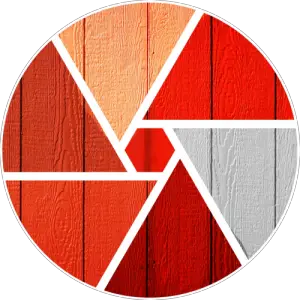
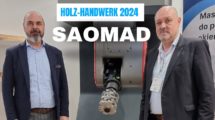
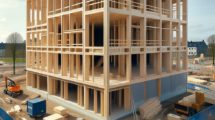
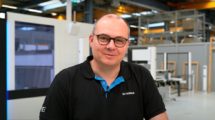





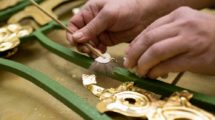
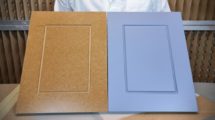


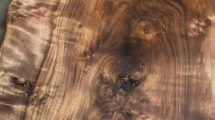
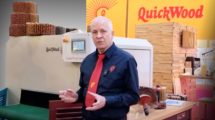
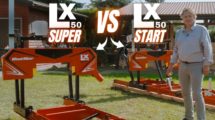
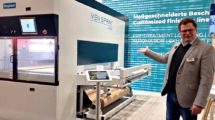



















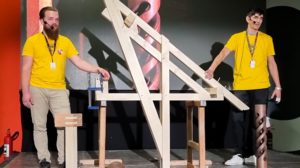
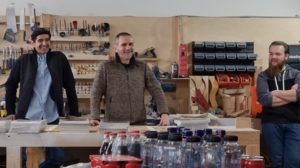
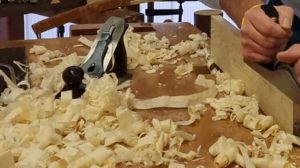
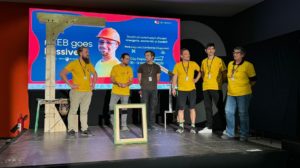




Add comment